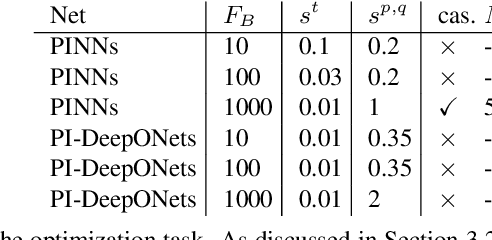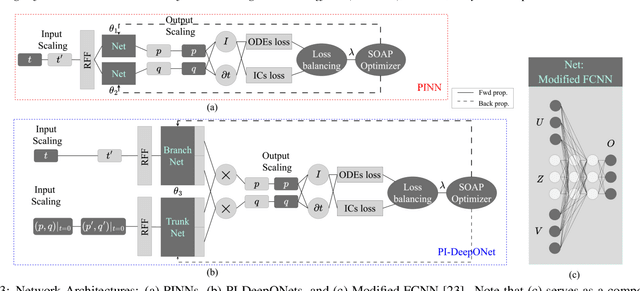Physics-Informed Deep Learning for Nonlinear Friction Model of Bow-string Interaction
Paper and Code
May 25, 2025



This study investigates the use of an unsupervised, physics-informed deep learning framework to model a one-degree-of-freedom mass-spring system subjected to a nonlinear friction bow force and governed by a set of ordinary differential equations. Specifically, it examines the application of Physics-Informed Neural Networks (PINNs) and Physics-Informed Deep Operator Networks (PI-DeepONets). Our findings demonstrate that PINNs successfully address the problem across different bow force scenarios, while PI-DeepONets perform well under low bow forces but encounter difficulties at higher forces. Additionally, we analyze the Hessian eigenvalue density and visualize the loss landscape. Overall, the presence of large Hessian eigenvalues and sharp minima indicates highly ill-conditioned optimization. These results underscore the promise of physics-informed deep learning for nonlinear modelling in musical acoustics, while also revealing the limitations of relying solely on physics-based approaches to capture complex nonlinearities. We demonstrate that PI-DeepONets, with their ability to generalize across varying parameters, are well-suited for sound synthesis. Furthermore, we demonstrate that the limitations of PI-DeepONets under higher forces can be mitigated by integrating observation data within a hybrid supervised-unsupervised framework. This suggests that a hybrid supervised-unsupervised DeepONets framework could be a promising direction for future practical applications.
 Add to Chrome
Add to Chrome Add to Firefox
Add to Firefox Add to Edge
Add to Edge